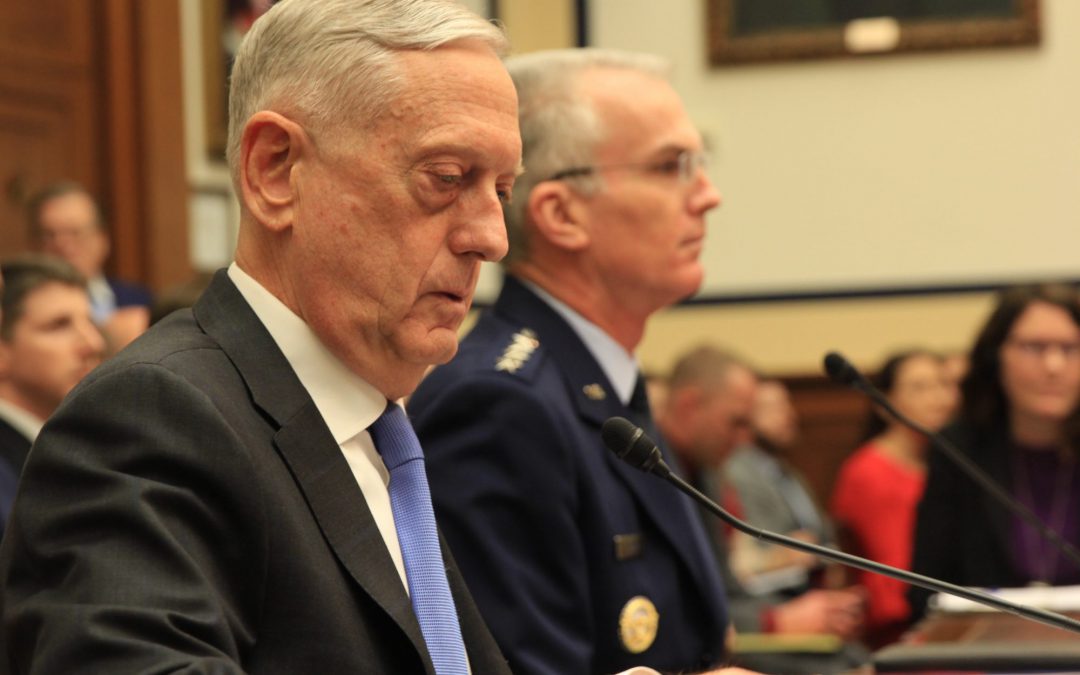WASHINGTON– Without a spending resolution that would fund the defense budget for a year—which the House will vote on later this afternoon ahead of Thursday’s shutdown deadline—the Defense Department’s plans to bolster the military will have to be changed. That was the message from Secretary of Defense Gen. James Mattis Tuesday at the House Armed Services Committee oversight hearing.
“Without [the spending bill], we will be put in a position where the strategy would have to change and we would have to accept greater risk, especially in terms of deterring adversaries,” Mattis said.
The continuing resolution includes the full $639 billion budget Defense requested for the year as well as two years of funding for community health centers, and keeps the government running on stopgap funding through March 23. While it’s expected to pass the House, the Senate will likely kill the measure and force a back-and-forth between the two legislative bodies.
“We have given the Senate every opportunity, and we are going to do so today, to fully fund the military,” Mac Thornberry, Chairmen of the House Armed Services Committee, said. “The big question is, what are they going to send back to us?”
In the National Defense Strategy, released in January on the day of the last government shutdown, and the Nuclear Posture Review, released Friday, the Trump administration has asked for massive investments into modernizing current capabilities and implementing new weapons programs.
Mattis, who arrived at the Pentagon skeptical of the U.S. nuclear arsenal, now touts a hard line on nuclear policy, advocating for programs such as a low-yield nuclear weapon that he said would enhance the credibility of U.S. deterrence positions. After conducting a review of the U.S. nuclear programs, Mattis concluded that large nuclear investments were critical to avoiding great power conflict. These investments would have to be put on hold without a long-term funding plan.
But Rep. Adam Smith, D-Wash., ranking member of the Armed Services Committee, said that passing the “cromnibus” bill today would continue the “gutting” of the State Department, disrupting the ability of U.S. diplomats to conduct critical dialogue with other nuclear-armed nations.
“It becomes a self-fulfilling prophecy,” Smith said. “How do we know we have real weapons to deter Russia and China? Well we’re not talking to them, so we have to presume the worst and give up on diplomacy.”
Smith emphasized that diplomacy minimizes the possibility of potentially disastrous miscalculations by foreign adversaries that could result in escalation.
“What disturbs me about the direction of this conversations is I don’t believe that great power rivalry equals endless arms race,” Smith said.
While Mattis agreed that communications are an important aspect of deterrence, he redoubled his position that investing in advanced nuclear weapons would give negotiators a stronger bargaining position.

